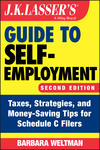When Are Foster Care Payments Tax Free?
The tax law allows individuals who receive foster care payments to exclude them from gross income if all three of the following conditions are met:
- Payments are made pursuant to a foster care program of a State
- Payments are paid by a State or political subdivision thereof, or a qualified agency; and
- Payments are paid to a foster care provider for the care of a qualified foster individual in the foster care provider’s home.
In one recent case, the taxpayers owned two residences. They spent considerable time at the foster care home and had a bedroom there. However, their extended family (who were not foster care clients) lived in the other residence. They lived in the residence with their extended family.
The Tax Court denied them the right to exclude the foster care payments. The fact that they owned the home in which the foster care clients lived did not mean that the clients lived in the provider’s home. Based on the facts, the taxpayers lived in one home and worked in the other. Thus, the foster payments were taxable.
Source: Jonathan E. Stromme et al, 138 TC No. 9
Short tax year
A tax year of less than 12 months. May occur with the startup of a business or change in accounting method.



